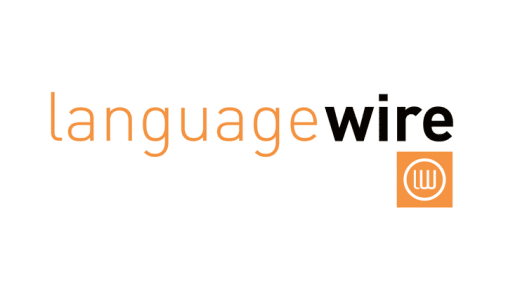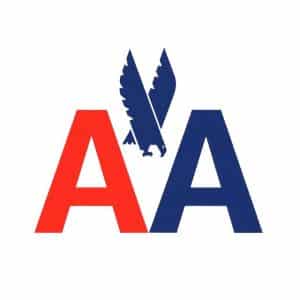Expert English Transcription for Every Industry
English is the global language of business, media, and education, making high-quality transcription essential for organisations worldwide. However, English is far from uniform—British, American, Australian, and Canadian English all have unique spelling, vocabulary, phrasing, and grammatical structures that must be considered. Ensuring accurate English transcription requires more than just converting speech into text; it means adapting to these variations so that your content is precise, natural, and professional for your target audience.
Regional differences in English can be subtle but impactful. A legal transcript for a UK court must follow British English conventions, while a business report for a US corporation should adhere to American English spelling and terminology. Similarly, a documentary filmed in Australia may feature expressions unfamiliar to audiences in Canada. These distinctions influence not just word choice but also sentence structure, formalities, and industry-specific terminology.
At GoLocalise, we specialise in English transcription services that reflect these regional nuances. Our team of native English-speaking transcriptionists ensures that every transcript aligns with the correct grammar, spelling, and formatting while maintaining clarity and accuracy. Whether you need transcription for corporate meetings, legal cases, academic research, or media projects, we provide meticulously crafted transcripts that suit the specific needs of your industry and audience.
We used GoLocalise to voice several of our films in Vietnamese. The service was friendly and professional. Being able to attend the recording sessions gave me confidence; the sound engineer had taken a lot of time to familiarise himself with our films and scripts, and the voice talents were incredibly competent and good at adapting to any changes in the scripts as we recorded. The whole process was incredibly smooth and I felt in safe hands.
Let's get started!
English Transcription Services Tailored to You
We understand that different projects require different levels of detail, which is why we offer a range of English transcription services designed to fit your specific needs. Whether you need a word-for-word record, a refined version for readability, or a concise summary of key points, our transcriptionists adapt to your requirements with precision and accuracy.
- Verbatim transcription captures every spoken word, pause, and filler sound exactly as they occur. This format is essential for legal cases, investigative journalism, medical consultations, and research studies, where even the smallest details—such as tone, hesitations, and background noises—can be significant. If accuracy and authenticity are your priorities, this is the ideal option.
- Edited transcription refines the text by eliminating unnecessary repetitions, filler words, and hesitations while maintaining the integrity of the original speech. This is the preferred format for corporate reports, business communications, training sessions, and marketing content, where readability and clarity are key. Our transcriptionists ensure that the final document remains true to the speaker’s intent while improving its structure for a professional audience.
- Summary transcription condenses lengthy conversations into well-organised key points, making it an excellent choice for executive briefings, press releases, academic summaries, and media scripts. Instead of a full-length transcript, this format provides a streamlined overview of the most important discussions, allowing for quick decision-making and easy reference.
For multilingual projects, we also offer bilingual transcription, ensuring that English content is accurately transcribed and translated alongside French, Spanish, German, and other languages. This service is particularly useful for international business meetings, multilingual conferences, and global media productions, where precision and cultural adaptation are critical.
What Do Our English Audio and Video Transcription Services Include?
A voice-to-text method that captures everything spoken, including interjections, signs of emotion (coughs, sighs, chuckles), false starts, and thought process shifts. It’s useful for reference during editing, but not ideal for finished, polished content.
This captures the speech exactly as it’s spoken, omitting filler words but without correcting grammar or sentence structure. It’s useful when accuracy is needed, but without polishing the final result.
Filler words, false starts, and mispronunciations are eliminated, with grammar corrected. This creates a refined document that reads more like proper text, ideal for publishing or any public-facing material.
Learn more about Transcription Services
Let's get started!
What Are the Benefits of Transcribing Your English Audio or Video Content with GoLocalise?
Take a podcast, for instance. By providing a text version of your audio content, search engines like Google can easily index and include it in their search results. When people search for keywords related to your subject matter, they’re far more likely to come across your material. This not only boosts your visibility but also significantly increases traffic to your site, expanding your reach and enhancing your online presence.
Journalists, bloggers, and other content creators often rely on quotes and citations to back up their arguments. When faced with two equally credible sources, one of which has already been transcribed, the transcribed version is much more likely to be chosen. Having your content available in written form makes it far easier for others to reference and quote, increasing the chances of your material being used in a variety of publications and discussions.
Creating high-quality audiovisual content, whether a podcast or a video, is both time-consuming and expensive. Why restrict it to just one format or platform? With a transcript, you can repurpose your content into a range of new formats, such as blog posts, social media updates, or short teaser clips that can attract new audiences. This process not only drives more traffic to your site but also ensures that your original content continues to serve a variety of purposes, maximising its value and impact.
One of the most important benefits of transcription is the increased accessibility it provides, particularly for people with hearing impairments. Without a written transcript, your audio or video content remains completely inaccessible to the deaf and hard-of-hearing communities. Providing a transcript ensures that everyone, regardless of their hearing ability, can engage with your content, helping to make your message more inclusive and far-reaching.
In the UK alone, there are approximately 550,000 Polish speakers, along with over a million speakers of languages such as Punjabi, Gujarati, Bengali, and Urdu. For many second-language speakers, especially when the content involves complex topics or colloquial expressions, following along with audio in a non-native language can be challenging. By providing a written transcript, you give these audiences a valuable resource to help them understand and engage with your content more effectively, bridging the gap between language barriers.
Creating your audiovisual content, whether that's a podcast or a video of some kind, is often an incredibly time-consuming and expensive process. So why use it for only one purpose? You can use a transcription to repurpose your materials into a blog or social media post, to drive traffic to your website, to use as a teaser to bring people to a full-length podcast, and many more uses too.
Industries That Rely on English Transcription
Professional transcription is crucial for businesses, legal professionals, media producers, researchers, and technology developers who need clear, structured documentation of spoken content.
- Business & Finance – Companies use transcription for board meetings, financial reports, and international communications, ensuring accurate records and compliance.
- Legal & Compliance – Law firms and courts require transcriptions for hearings, contracts, and depositions, where precision is critical for legal accuracy.
- Media & Entertainment – Transcription is key for subtitles, film scripts, and interviews, making content more accessible and globally adaptable.
- Academic & Research – Universities and researchers rely on transcripts for lectures, interviews, and studies, ensuring findings are easily referenced and shared.
- Technology & AI – Transcriptions help train speech recognition, AI assistants, and automated captions, improving voice-driven applications.
Across industries, high-quality English transcription ensures spoken content is accurate, accessible, and ready for professional use.

Leave your project to the experts at GoLocalise so that you can relax and be assured of getting top-notch results
Every single detail will be analysed, studied and looked after so that you do not need to worry.
Some would say it’s not too classy to blow our own trumpet… but we just like to point out two very important details.
We have achieved ISO 9001 Quality Management certification in recognition of our consistent performance and high standards, and ISO 14001 Environmental Management because we care about our planet!
And if you are still curious and want to know more about us, why not have a look at our studio page.
Learn more about Transcription Services
Let's get started!
Regional Differences in English Transcription
English transcription must consider regional spelling, vocabulary, and formatting to ensure clarity for the intended audience. Variations between British, American, Australian, and Canadian English impact not only spelling but also word choice, sentence structure, and industry-specific terminology.
For example, “favour” in the UK becomes “favor” in the US, while a “flat” in London is called an “apartment” in New York. In Australia, “petrol” is used instead of the American “gas,” and in Canada, legal terms often follow British conventions with French influences. These distinctions matter in business, law, media, and education, where using the correct variation ensures professionalism and credibility.
At GoLocalise, we adapt transcriptions to the English variant best suited to your audience, ensuring consistency in spelling, terminology, and style. Whether your transcript is for a UK law firm, a US corporation, or an Australian media company, we ensure it meets the linguistic expectations of your target market.


A Reliable English Transcription Process
Our structured process ensures efficient, accurate English transcription tailored to the regional spelling, terminology, and formatting required for your audience.
- Secure File Upload – Submit recordings through our encrypted platform, ensuring data security and confidentiality.
- Native English Transcriptionists – Our team includes specialists in British, American, Australian, and Canadian English, ensuring regionally accurate transcriptions.
- Proofreading & Review – Every transcript is carefully edited to ensure correct spelling, grammar, and industry-specific terminology.
- Client Collaboration & Refinements – We adjust transcripts based on your preferred English variant, industry standards, and formatting needs.
- Final Delivery in Your Format – Receive transcriptions in the structure best suited for corporate reports, legal documents, subtitles, or research materials.
For large-scale projects, such as international conferences or multilingual productions, we offer scalable solutions that maintain consistency, accuracy, and on-time delivery.
Why Choose GoLocalise for English Transcription?
By choosing GoLocalise, you gain a partner who understands the regional and industry-specific challenges of English transcription.
- Native English Experts – We specialise in British, American, Australian, and Canadian English, ensuring accurate localisation.
- Quality & Accuracy – Every project is reviewed for spelling, grammar, and terminology precision.
- Customised Solutions – Whether you need corporate transcriptions, creative scripts, or technical reports, we tailor our services.
- Fast & Reliable Delivery – We guarantee on-time transcripts without compromising quality.
Let us help you convert spoken English into structured, high-quality text. Contact us today to discuss your transcription needs and find out how GoLocalise can support your projects.

What our happy customers say
Patricia Leon-Fedorko
Account Specialist at Advanced Language

Philippa Strandberg-Long
Deputy Course Leader - Acting, Italia Conti
Marion Hirst
Translation Project Manager at Language Wire

Lucas Cole
Sales and Marketing Director at Epipheo
Jonathan Lapps
Account Manager at Epipheo
Adam Ruddick
Head of Production at Casual Films


Price Match Promise
Challenge Our Prices, Enjoy Our Quality















